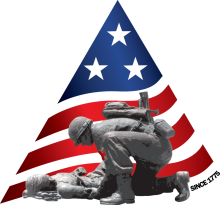Evaluation of A Self-Care Toolkit in Surgical Breast Cancer Patients
The main research questions focus on whether the toolkit provides short-term benefits on symptoms associated with surgery (i.e., pain, anxiety, nausea) and whether it impacts emotional distress and other symptoms (i.e., pain, fatigue, sleep disturbance, global health, quality of life) at a two-week post-operative time point. This study will be conducted at San Antonio Military Medical Center (SAMMC) in active duty, veteran, and military dependent women newly diagnosed with breast cancer for whom surgery (e.g., lumpectomy or mastectomy) is the initial treatment option. One to two weeks prior to surgery, women diagnosed with breast cancer at SAMMC Oncology Department will be invited to participate in this study. Those who meet criteria and agree to participate will be enrolled on-study and randomly assigned to either the surgical toolkit group or standard care group. During the pre-operative period, women in the intervention group will be asked to read through the manual, listen to each of the 8 audiofiles at least once but as many times as desired, and to wear the acupressure wristbands during surgery. Women randomized to the standard care group will not receive an intervention prior to surgery but will receive the toolkit at study completion. The rationale for providing women in the standard care group with the toolkit at their post-operative visit is that the skills of breathing, meditation, and guided imagery might be potentially beneficial for them to use during their subsequent treatment or a future surgery. Additionally, qualitative interviews will be conducted in a cohort of women from the intervention group, at a two-week post-operative time point to assess their impressions and satisfaction with the toolkit; questions will focus on whether the individual used each of the toolkit's components, frequency of use, how she would rate the product's attributes (e.g., ease of use, clarity of instructions, quality rating, helpfulness), and perceptions about the helpfulness and usefulness of learned mind-body skills.

